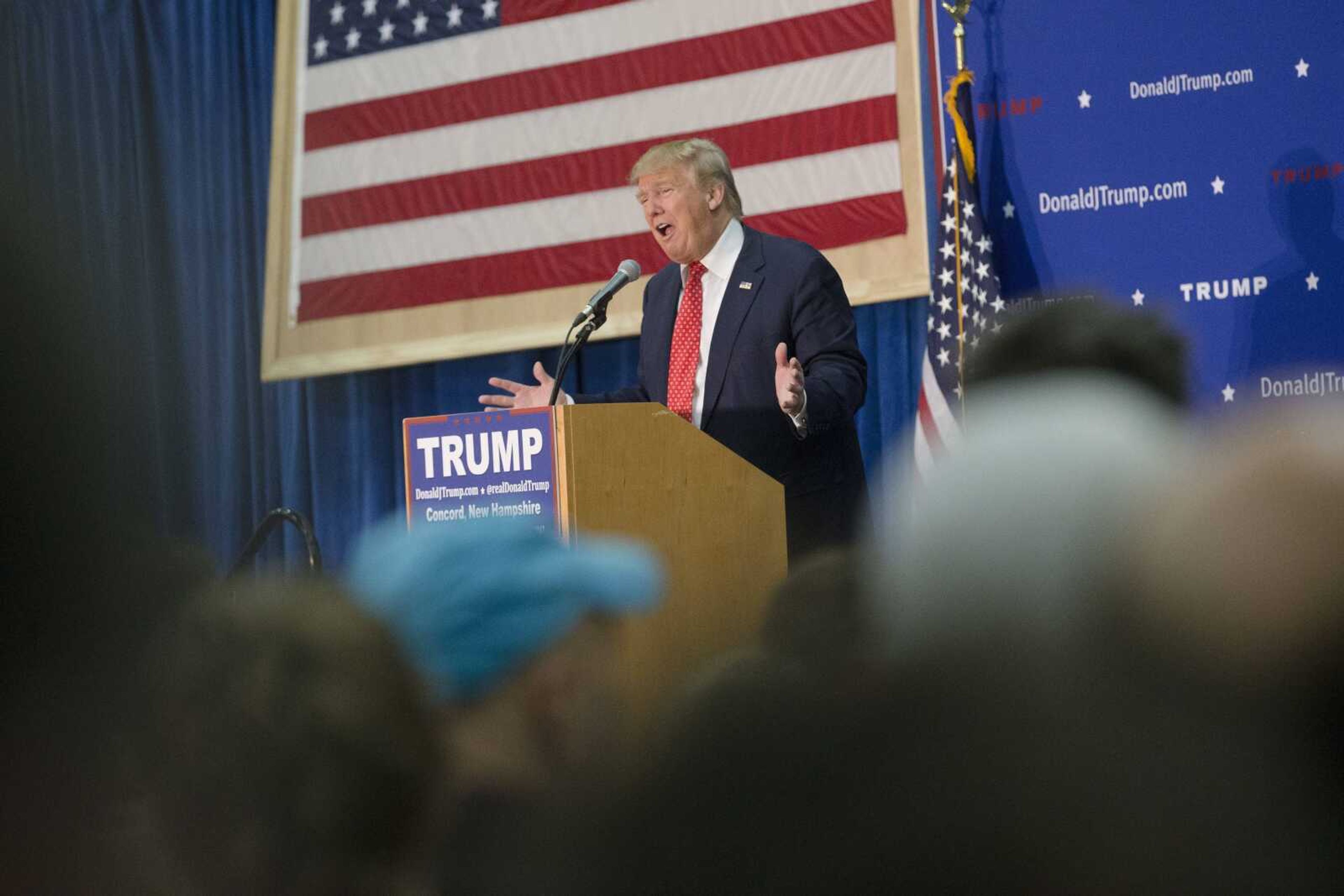GOP wonders whether Trump has fans or voters
WEST DES MOINES, Iowa -- It's the No. 1 question as primary season begins: Does Donald Trump merely have fans, or does the national front-runner for the Republican presidential nomination have voters who will mobilize come caucus day? The answer won't arrive until first-to-vote Iowa heads to the polls Feb. 1, but interviews with dozens of voters, political operatives, party leaders and campaign volunteers in the past week paint a mixed picture of Trump's efforts to make sure they do...
WEST DES MOINES, Iowa -- It's the No. 1 question as primary season begins: Does Donald Trump merely have fans, or does the national front-runner for the Republican presidential nomination have voters who will mobilize come caucus day?
The answer won't arrive until first-to-vote Iowa heads to the polls Feb. 1, but interviews with dozens of voters, political operatives, party leaders and campaign volunteers in the past week paint a mixed picture of Trump's efforts to make sure they do.
Even some of the billionaire real-estate mogul's most ardent backers wonder whether the political novice has the kind of ground game needed to ensure supporters -- especially those new to taking part in a caucus -- can navigate a process that isn't as easy as casting a ballot.
But many believe that even if Trump is falling short when it comes to building a get-out-the-vote effort, his supporters are so enthusiastic, it won't much matter.
"I have a feeling we're going to actually do better than the polls are saying because there's a movement," Trump told supporters in suburban Des Moines last week, dismissing suggestions the thousands who pack his rallies won't make it out on caucus night.
"I don't know, maybe they won't," he added. "But it seems crazy because some of those people were waiting on line for seven hours in the cold."
Questions about Trump's turnout effort are magnified by his place alongside Texas Sen. Ted Cruz atop preference polls in Iowa.
Republican leaders in the state largely agree Cruz, popular with the state's politically savvy evangelical Christians and social conservatives, has the most powerful get-out-the-vote operation among the GOP candidates for president -- complete with an army of out-of-state volunteers housed in dormitories.
Those same observers were mixed when describing what Trump has put together.
"Normally, I at least know the country chairs, and I see some organization," said Gwen Ecklund, chairwoman of the Republican Party in Crawford County, who said Trump staffers weren't doing as much as other campaigns.
"Quite frankly, I haven't seen quiet as much of his organization at a country level as the other candidates," said Warren County GOP chairman Rick Halvorsen, who couldn't recall having seen Trump representatives at the party's monthly meetings.
Don Kass of the Plymouth County GOP said he'd been fielding calls from other campaign officials inquiring about speaking arrangements on caucus night but has yet to hear from Trump's team.
Dozens of people interviewed in recent weeks at Trump rallies across the state said while his team is active online, they have had relatively little personal contact from the campaign.
Many said they had yet to receive a phone call or a campaign mailing.
None reported a knock on the door.
On a recent Friday evening, Trump's main campaign office in suburban Des Moines was closed by 7 p.m.
Three miles up the road, Cruz's headquarters hummed with the sounds of more than 30 volunteers placing calls.
"That's a precarious model," Paul Tewes, who organized then-Sen. Barack Obama's successful 2008 campaign in Iowa, said of a campaign that relies on emails and phone calls alone.
The issue, Tewes explained, is Iowa doesn't make its presidential choice with a primary.
Ballots aren't cast at polling stations open from dawn to dusk. Instead, a caucus requires voters to show up at a designated place at a designated hour, at night in winter, to listen to speeches and eventually express support for their favored candidate in a Byzantine voting process.
"It's a much higher hurdle than voting in a (traditional) election," Tewes said.
Successful campaigns need to be in constant contact with voters -- his aim was once every two weeks -- to get them invested enough in a campaign to make it to caucus night, he said.
Connect with the Southeast Missourian Newsroom:
For corrections to this story or other insights for the editor, click here. To submit a letter to the editor, click here. To learn about the Southeast Missourian’s AI Policy, click here.









